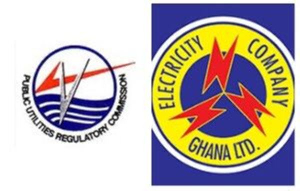By Ghana News
Copyright ghanamma

Residents in Keta Municipality of the Volta Region, have expressed frustration following the Public Utility Regulatory Commission’s (PURC) approval of a 1.14 per cent increase in electricity tariffs.
The decision has sparked concern about the impact on household budgets and business operations across the municipality and the region.
The PURC has justified the tariff adjustment as necessary to support utility companies in managing operational costs and ensuring sustainable service delivery and the hike was aimed to help providers cope with financial pressures affecting their services.
According to the new tariff structure, residential consumers using 0-300kWh of electricity would pay GH¢180.19/kWh, while non-residential users will face a rate of GH¢202.17/kWh with the adjustments reflecting on PURC’s efforts to balance consumer interests with utility company needs.
George Awudi, a resident of Dzelukope, a suburb of Keta, in an interview with the Ghana News Agency, said that many residents were worried about the added strain on household finances, particularly those with limited incomes.
“The increase will exacerbate economic hardships faced by many of us ordinary citizens who are already battling with rising cost of living, government must intervene to curb the troubles ahead,” he said.
He explained that the tariff hike had also raised concern for businesses, which have assumed that the increased operational expenses would affect competitiveness and could potentially lead to higher prices for goods and services.
Madam Sese Amegbo, a businesswoman, lamented that the PURC had earlier implemented several tariff adjustments in recent years including 2.45 per cent adjustment in June 2025 in electricity tariffs which highlighted the ongoing challenges in balancing utility sustainability with affordability for consumers.
She said that amidst public discontent, there were growing appeals for government support to mitigate the impact on vulnerable households while some other critics have advocated targeted subsidies or other measures to cushion low-income consumers.
Other individuals such cold store operators, fashion designers, hairdressers, among others, GNA interacted with expressed worry about the new tariff adjustment and appealed to the government to intervene to save their businesses.
They said the country’s economy faced broader challenges, which contributed to higher cost-of-living and pressure and the new electricity tariff increase would affect affordability and economic well-being for many citizens.
Meanwhile, some key factors the PURC said influenced the tariff decisions include inflation, exchange rate fluctuations, and rising fuel costs and considered the elements evaluation adjustments as the only method to ensure utilities remain viable.
The PURC also indicated that the ongoing review of tariff structures was to align with economic realities and utility needs, signaling potential future adjustments based on evolving circumstances in the country’s energy sector.
GNA gathered that the PURC was the institution tasked for ensuring fair and sustainable tariffs balance for consumer and provider interests while the commission emphasized transparency in its decision-making processes.



